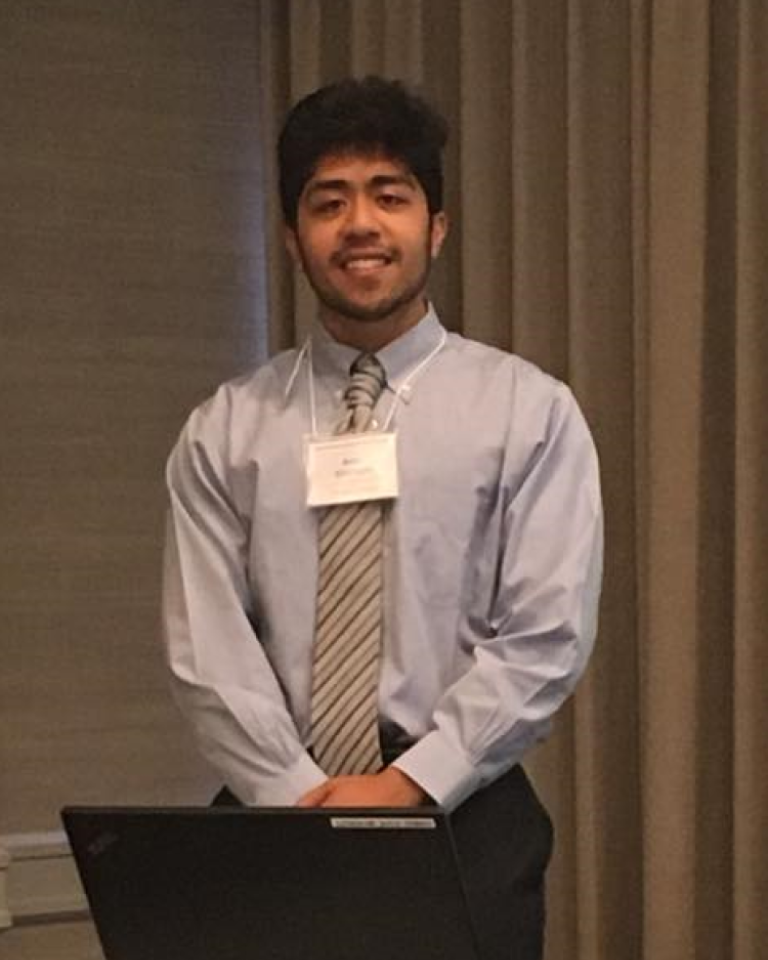Amir Khaleghi

STUDENT SPOTLIGHT | FEBRUARY 2017
Department: Economics
Describe your work in a few sentences that we can all understand: My study concerns itself on religious affiliation and its effect on charitable donation. It aims to find whether religiously affiliated families act more charitable than those who are non-religious.
Q: Who mentors your project?
A: Dr. Donna Ginther
Q: What surprised you about doing research?
A: I was surprised on how specific your topic can be. I found that when I first started, I wanted to examine too much, my topic ideas were too large to handle. It takes a lot of thought to finally refine your topic to a manageable size. Then after it is sizable, you have to make sure that you have the data that can support your topic.
Q: What did you find most challenging about getting involved in or doing your project? What advice would you offer to students facing similar challenges?
A: For me, it was finding data to support my topic. For my study, I had to learn a lot about statistical software (STATA). When I started my project, I had little understanding of STATA. So it was challenging to learn enough about it to comfortably and confidently work on my project. I would suggest reaching out to your mentors for help, they are going to be there for you. Personally for me, my mentor directed me towards a very useful STATA course offered over the summer and got me in contact with her graduate research assistant to help me with obstacles I faced.
Q: What do you like most about your project?
A: I like being able to apply my economics coursework to my research. It keeps me more attentive during class because I understand that the information can both benefit my success in the class and my project. I have now had enough experience to be comfortable with STATA, and managing large data sets is quite fun. You come to appreciate the software and all its capabilities.
Q: What advice would you give to a friend wanting to get involved in research?
A: Start thinking about a research question that you are passionate about, then find a mentor with a similar interest. Don’t be afraid to talk to faculty: even if they can’t personally mentor you, they will point you in the right direction.
Q: How do you spend your time when you're not working on your research?
A: I think it’s important to find little things to improve upon in your daily routine. For me, I really enjoy going to the rec; it’s my time to just relax and not think about anything except the rec. All my outside worries just faze out. Then it’s fun to take note on your improvements (or regressions) week to week. I also spend a lot of time playing board games with my friends, it’s a time that encourages friendly competition and provides an environment for wholesome conversation.